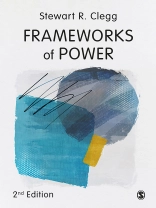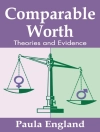Frameworks of Power is a coherent and comprehensive account of the different frameworks for understanding power that have been advanced by influential thinkers across the social sciences. A true classic in the field, the original edition proved hugely influential and a major point of reference for scholars at all levels concerned with power.
Looking back to the classical literature on power, with special emphasis on Machiavelli and Hobbes, the book concentrates on the analysis of power – from both British and American social and political theorists, and from German Critical Theory and French theorists such as Foucault – and develops upon its theory and its application.
The second edition includes a completely new chapter, A History of the Present, which offers a timely, engaging and provocative intervention by analysing three contemporary crises - the COVID-19 pandemic, Russia′s invasion of Ukraine and climate change - using the circuits of power framework that was the central concept of the original work.
As well as being an essential textbook for all students in social science disciplines, this wide-ranging and innovative analysis will appeal to scholars in sociology, politics, organization studies and other disciplines.
Cuprins
Frameworks Of Power Revisited
Power: Traditional Roots, Modern Problems
Political Community, Methodological Procedures And The Agency Model
The Power Of Intention
Lukes’ Dimensions And Epistemology
Giddens’ Critique Of Parsons And The Duality Of Structure
Post-structuralism, Sovereign Power And Disciplinary Power
Circuits Of Power: A Framework For Analysis
Constituting Circuits Of Power In Modernity
A History Of The Present
Despre autor
Stewart Clegg is Professor at the University of Sydney in the School of Project Management and the John Grill Institute for Project Leadership and an Emeritus Professor of the University of Technology Sydney.












